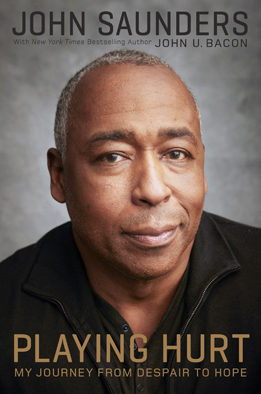|
More specifically, Omalu met Autopsy A02-5214.
That was Webster.
It was a meeting that Omalu later said he wished had never
happened…
Omalu was born in the midst of a bombing raid on the small
Nigerian town in which his parents had taken refuge. Civil
war didn’t last long but it left its mark: Omalu says he was
always physically small for his age, due to wartime
malnutrition, but it didn’t affect his mental abilities.
Omalu’s father, a self-made man with a college degree,
insisted that his children become educated; Omalu started
school at age three.
He was an introverted child, a dreamer, and “lazy,” but
Omalu knew he could get good grades if he wanted them. The
problem was, he didn’t want them, until an older sister
enticed him with money. His grades rose and he became a star
student who dreamed of becoming a pilot – but Omalu’s father
had other ideas. He wanted another doctor in the family.
Unwilling to disappoint his father, Omalu entered medical
school at age 16, with an eye toward going to America. Med
school revealed to him that he was uncomfortable with caring
for living patients so, by the time he emigrated, he’d
shifted his focus to a career in research. Later, he reached
for a fellowship in pathology.
His first autopsy was unsettling, he says, until he
recognized the humanity of the remains before him. As he
does even today, he asked the deceased to help him
understand.
And then he met Mike Webster…
So you’ve seen the movie, Concussion. You may’ve
even read the book. So why read this one, written by
the guy the other book and film are about?
If you’ve always felt that the book is better than the
movie, you know why: in Truth Doesn’t Have a Side,
author Bennet Omalu (with Mark Tabb) offers his own tale,
first-hand, with a different focus. Omalu tells readers more
about himself, explaining how faith protects and drives him,
and laying his success at God’s feet. This, along with his
detailed story, gives a clearer picture of the man who
confronted the NFL.
And that’s where the second half of this book takes you: to
Omalu’s discovery, uncovery, his opinions and conclusions,
and his battle for recognition, both in findings and out.
It’s this second half that may disturb football fans. It may
shock parents.
It could change your weekends.
If you can handle that, then grab this elegantly graceful,
informative bio-wrapped-in-science and have a seat. “Truth
Doesn’t Have a Side” is good, so settle in and meet
your next favorite book.
* * *
For another side of the subject, check out Playing
Hurt: My Journey from Despair to Hope by John Saunders.
It’s a story of football and depression – something,
coincidentally, that Omalu says he suffered from, too.
Together, these books will have you glued to your seat.
 |